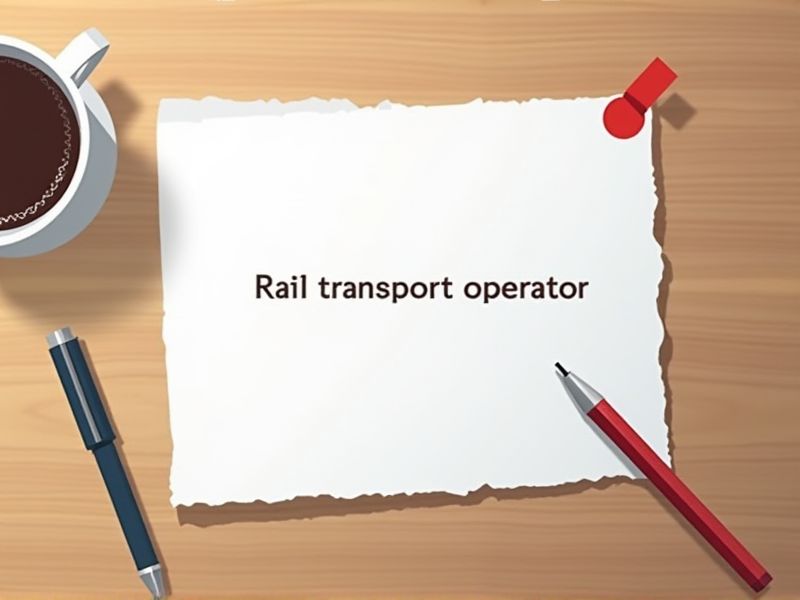
Rail transport operators require specific certifications primarily to ensure safety and adherence to stringent regulatory standards. Certifications validate an operator's competency in managing complex rail systems and handling the technical aspects of locomotives. They also mitigate risks associated with rail operations by ensuring operators are well-versed in emergency protocols. Listed here are some critical certifications necessary for a career as a rail transport operator.
Locomotive Engineer Certification
The Federal Railroad Administration mandates Locomotive Engineer Certification to ensure that operators comprehend and can apply essential safety regulations. Certification reduces the risk of accidents by verifying that engineers have the necessary skills and knowledge to operate trains safely. This certification also standardized training protocols across the industry, leading to consistent operational practices. Rail transport operators face fewer legal liabilities and enhance public trust with certified locomotive engineers.
Conductor Certification
Conductor certification ensures that rail transport operators understand and comply with safety regulations, reducing the risk of accidents. Proper certification equips conductors with the necessary skills to manage emergencies effectively, safeguarding passengers and cargo. Rail operators require certified conductors to enhance operational efficiency and reliability. Certification also serves as a standardized measure of competence, fostering public trust in rail services.
FRA Rail Safety Certification
The FRA Rail Safety Certification ensures that rail transport operators adhere to rigorous safety standards, reducing the likelihood of accidents. Compliance with certification fosters trust among passengers and regulatory bodies, encouraging greater use of rail transport. It mandates continuous safety evaluations, which help identify potential risks and implement measures to mitigate them effectively. Certification also harmonizes safety protocols across different operators, facilitating smoother interstate rail operations.
Hazardous Materials Transportation Certification
Transporting hazardous materials poses substantial risks; therefore, certification ensures rail transport operators understand regulatory compliance and safety protocols. Certification reduces the likelihood of accidents, thereby minimizing environmental damage and human injury. Proper training in handling hazardous materials contributes to efficient response in emergency situations, mitigating potential disasters. It also builds trust with stakeholders, ensuring economic and social continuity in goods transportation.
Signal and Communication Systems Certification
Rail transport operators need Signal and Communication Systems Certification to ensure safe and efficient management of train movements, minimizing risks of collisions and mishaps. Certifications provide operators with knowledge of the latest technologies and protocols, enhancing coordination across various communication channels. With certified skills, operators maintain compliance with regulatory standards, reducing potential legal liabilities. Proficiency in these systems helps operators optimize scheduling and operational efficiency, leading to improved service reliability and customer satisfaction.
Rail Operations Management Certification
Rail Operations Management Certification provides structured training that enhances the skills of rail transport operators, leading to safer rail operations. Regulatory compliance often mandates that operators demonstrate a high level of competence, which the certification ensures. Employers can reduce operational risks and potential liabilities by relying on certified staff. Certification supports career progression for operators, leading to better job opportunities and retention within the industry.
Emergency Response and Incident Management Certification
Rail transport operators face increasing safety demands, and certification in Emergency Response and Incident Management equips them with necessary skills to handle crises effectively. Rail incidents can lead to significant human and material losses; trained operators mitigate these risks swiftly. Certification ensures operators are up-to-date with safety protocols, reducing liability and enhancing passenger confidence. Regulatory bodies often mandate such certifications, aligning operators with legal compliance and industry standards.
Occupational Health and Safety (OSHA) Certification
Obtaining OSHA Certification ensures rail transport operators are trained to recognize and mitigate risks, reducing workplace injuries. This certification promotes a culture of safety, encouraging compliance with strict safety regulations. Understanding OSHA standards helps operators maintain a secure environment for both workers and passengers. Rail operators with OSHA Certification tend to experience fewer costly disruptions in service due to accidents or regulatory penalties.
First Aid and CPR Certification
Accidents on trains, such as slips, falls, or even heart attacks, can occur, and operators with First Aid and CPR certification can provide immediate assistance, potentially saving lives. Certification ensures operators are prepared to respond promptly to emergencies, reducing the risk of fatal injuries before professional medical help arrives. In the context of rail transport, where operators may be isolated from immediate medical facilities during transit, these skills become crucial in bridging the gap. Such training enhances passenger confidence in the operator's ability to manage health crises effectively on board.
Defensive Driving and Heavy Vehicle Operation Certification
Defensive Driving training equips rail transport operators with skills to anticipate and respond to potential hazards, reducing accident rates. Heavy Vehicle Operation Certification ensures operators can safely maneuver large rail equipment, preventing operational mishaps. These certifications demonstrate a commitment to safety standards, enhancing trust with stakeholders and regulators. Trained operators contribute to operational efficiency, reducing costs associated with accidents and repairs.
Summary
When you obtain certifications for rail transport operation, you enhance the reliability and safety of your services. This recognition can lead to greater trust among your clients and passengers, boosting your business reputation. Certification often results in improved operational efficiency and compliance with industry standards. Achieving such credentials may also open up opportunities for partnerships and increased competitiveness in the market.
